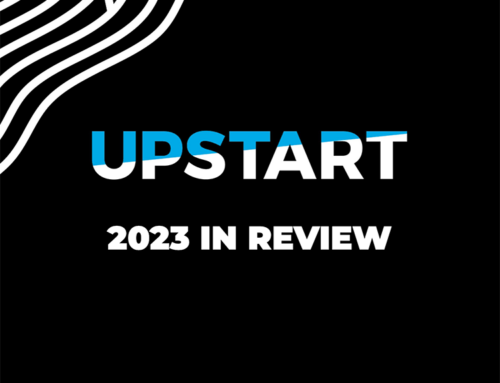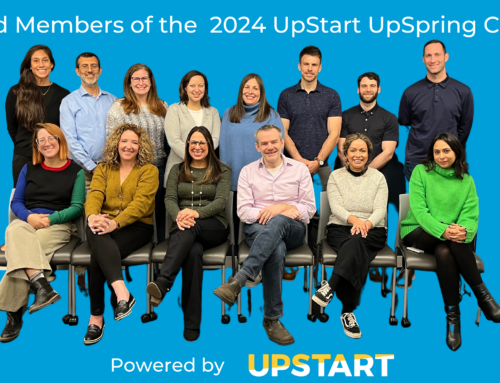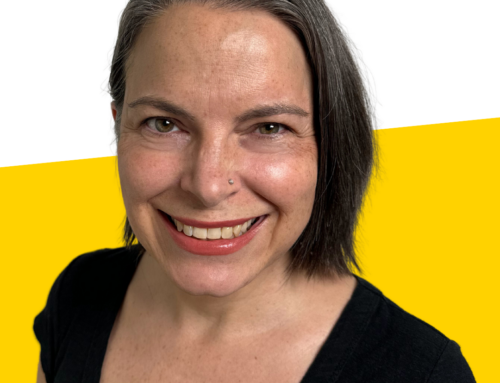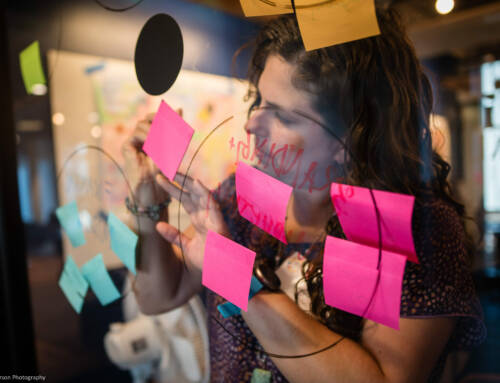
Yachad, Minneapolis
Accelerator Cohort 9
Remember the popular phrase from the film Field of Dreams heard from the cornfields, “If you build it, they will come”? When building new Jewish educational programs, especially for teens in the 21st Century, these Laws of Attraction no longer apply. If we build a strong, vibrant program for teens – they may come. But, if we build a strong, vibrant program with and by teens, we have a greater chance of the commitment and engagement needed to combat the serious post-b’nai mitzvah decline.
“It’s an entirely reversible trend,” says Dr. David Bryfman, Chief Innovation Officer at the Jewish Education Project in a recent article in the Forward, “but only if the Jewish community approaches teen engagement in a new way – one that recognizes the whole teen and values her or him as an equal partner in creating experiences that add meaning to her or his life.” This perspective change is how Yachad, the Jewish Educational Platform for Teens in Minneapolis, began its fruitful journey of creating a new, teen-centered educational program, using the principles of Human-Centered Design.
Human-Centered Design is a creative process of problem solving where you focus on the people you are designing for and then create solutions to fit their needs. Design models lay out different numbers of steps, but for our purposes, I’ll summarize them into three. First, you begin by listening to your customers, gathering information about them and empathizing with their needs. Then, you begin to frame the overall goals and create possible solutions. In Step 3, you deliver a test version of your product to test customer satisfaction.
Step 1: Understanding through Listening
Some Jewish learning settings tell teens what, when and how to learn. This theory follows Aristotle’s tabula rasa or the “empty vessel” traditional pedagogical theory. 21st Century best educational practices have transitioned to new models of engagement, which include the critical element of choice. Teens are a dynamic demographic, with a vibrancy for life and an excitement about engaging with the world. They can make excellent choices on their Jewish journeys when given appropriate resources, guidance and support.
When we first designed Yachad, it was crucial for us engage teens and their parents/guardians to understand their hopes, dreams and needs. Through this process, we heard that teens wanted the opportunity to learn about themselves, to bring the summer camp experiences into their yearly school program, to incorporate many aspects of life into one community experience, and to experience Judaism through a variety of ways rather than being told what to think. One parent summed up this culture change when s/he said, “It is time to start listening to what the teens want rather than what adults think they want.”
Step 2: Create Solutions
Teens have the unique ability to create smart solutions and are usually not inhibited by the practical realities around them like many adults. While they will need guidance, it is important not to dismiss out-of-the-box thinking for unrealistic or impractical ideas. It is the role of adults to continue baking these ideas, always focusing on the outcome and how the solutions will relate back to the teens.
Our community wanted to quickly build a new program that would capitalize on the momentum from our exploratory conversations. What emerged was a six session pilot program called the “Yachad Think Tank,” modeled after the popular TV show, Shark Tank. During the Think Tank, teens work in small groups to create experiences for future Yachad programming. They became experts on their chosen topics while integrating Jewish values into their overall plan. Soon, the Yachad Think Tank began to model the active learning community we desired. Teens and their mentors invented, innovated and took risks using collaboration, critical thinking and creativity to dream about what Yachad could look like. Following a framework and rubric, teens created prototype experiences to present to their peers.
Step 3: Test Ideas in Authentic Settings
Once ideas have been generated and evaluated, it is time to bring forward these new solutions to your community and test them. The teens will be able to see, hear and feel their voices and vision in the new product. And, they are the best subject to test new ideas because of their adaptability and flexibility. While teens tend to prefer consistency, they will understand as you tweak and improve the product. The key, however, is to always be honest and authentic.
At Yachad, our final step was for teens to present their proposals and for their peers to vote on the most dynamic design concepts using the detailed rubric. Proposals were rated based on the needs of the teens and the design of the future program. Proposals receiving the highest number of votes were coined the “Yachad Think Tank Winners.” Teens were excited to see the fruits of their labor printed and offered in the fall Yachad catalog. We were excited to see their deep commitment to our program, and we are already seeing overall educational changes. Over the past 24 months, we’ve seen increased hours of teen engagement (from 2 hours to 2.6 hours/week/teen on average, an increase of 30%).
Dr. Bryfman stresses that we must move beyond thinking about teens as passive recipients of Jewish learning experiences. Instead, “we must begin designing initiatives and program with Jewish teens, for Jewish teens.” I encourage you to take one step forward and engage in this powerful movement for change. If we allow, encourage and empower our teens to build it, they will come. Join together in this new movement – the teens in your community will thank you!

Our purpose is to enable entrepreneurs to bring bold Jewish ideas to light. We help them reach Up to people in new ways that are meaningful, more inclusive, and create a brighter future for our Jewish community and the world we share.





